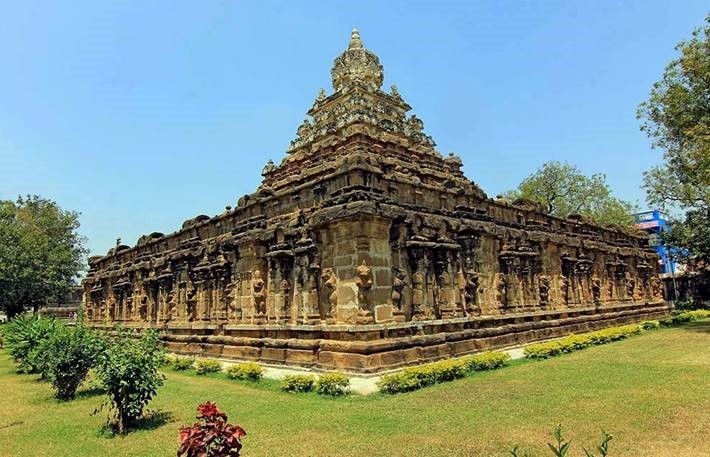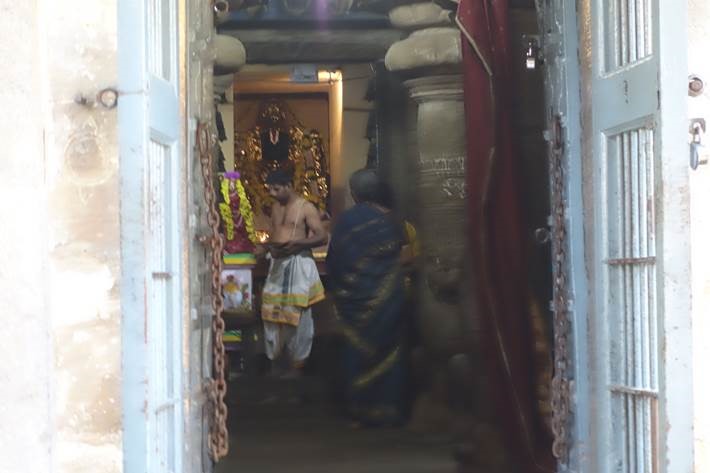Sri Vaikuntha Perumal Temple is the 56th Divya Desam dedicated to Lord Vishnu. This location was called Vidarbha desa and ruled by a king named Viroacha. Due to misdeeds in his preceding birth, Virocha had no heir. He prayed to Lord Siva at Sri Kailasanathar temple. The presiding deity of the temple gave a boon that the Dvarapalas (the gatekeepers) of the Vishnu temple will be born as sons to him. The two sons and princes, Pallavan and Vallavan, were deeply devoted to Lord Vishnu and conducted big yajnas to Lord Vishnu for welfare of people of the kingdom. Pleased by their devotion, Lord Vishnu granted darshan as Vaikundanatha Perumal to the princes.
Sri Vaikuntha Perumal temple is built in Dravidian architectural style. Temple has three-tier sanctorum’s (prakara), one on top of the other. At the ground floor sanctum, the primary deity of Lord Vishnu known as Sri Paramapadha Nathan is present in a seated posture. Lord Vishnu deity, called Lord Ranganatha on the first floor sanctum is in the sleeping posture (sayana kolam) with His consorts Sri Devi and Bhu Devi. On the topmost floor, Sri Paramapadanathan is in the standing posture. The temple dates back to 1300 years and is beautifully constructed. The walls of the temples are adorned with historical and religious sculptures and few describing the rule of the Pallava dynasty.
The Vaikasi Brahmotsavam, celebrated during the Tamil month of Vaikasi (May-June), and Vaikuntha Ekadasi celebrated during the Tamil month of Margazhi (Dec-Jan) are the two major festivals celebrated in the temple. About three lakh people visit this temple during Vaikuntha Ekadasi festival. This temple is revered in Nalayira Divya Prabandham, the 7th to 9th century Vaishnava canon by Thirumangai Azhwar in ten hymns. These verses are recited by a group of temple priests amidst music with nagaswaram (pipe instrument) and tavil (percussion instrument) at the temple. The temple is also called Mummada Koil. There was a secret underground tunnel laid out from this temple all the way to Mahabalipuram, on the eastern sea shore, as well as to Parameswara Pallava’s court.

Lord Sri Vaikunda Perumal